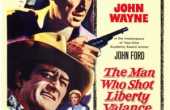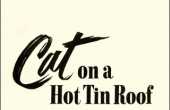Emily
Studied film to be a director before realizing screenwriting was my outlet. MFA student at DePaul University. @EmilyKalash
Contributor I
- Plebian Penman
- Lurker
- Pssst
- Sharp-Eyed Citizen
- Actor
- ?
- Articles
4 - Featured
0 - Comments
22
- Ext. Comments
12 - Processed
8 - Revisions
8
- Topics
8 - Topics Taken
0 - Notes
9
- Topics Proc.
8 - Topics Rev.
2
- Points
625 - Rank
206 - Score
321
Latest Articles
Latest Topics
Telling A Story Through AnimationAnimation has always amazed me. Everything from the artist who created the objects to the story blows my mind. For this specific topic, I think it would be interesting to examine how the absence of human actors changes the way a story or theme is perceived. For example, Zootopia is told from the point of view of animated animals. Yet, the film discusses heavy themes of preconceived judgment against specific groups. Most animated films are geared towards children. Why is this? What about those that are meant for adults?
|
Television and MasculinityWe've been hearing a lot of the end of the angry male protagonist in modern-day television. Breaking Bad and Mad Men are over, plus other TV shows with those similar main character tropes. What does this say about masculinity? Are we seeing more diverse male characters? Does this allow for better representation of what a man is?
|
Where should we get our knowledge?I'm sitting in a public metropolitan library as I type this, something I haven't done since before I attended college. There are tens of thousands of books wrapped in clear protective plastic on metal shelves. Those walking around me and sitting near me range from young students to elderly men and women. In a time of advanced technology and "doing-it-yourself" mentality, they all came here to do their own private work. I'm curious as our culture changes, how do we continue to grow and learn? Why do the age-old mediums, like libraries and communicating with each other, stay relevant. I would love to hear what others think. Please consider this is me throwing some ideas against the wall and seeing what sticks!
|
The Separation Between Predators and Their ArtThose who have harassed and sexually assaulted others are finally coming to light. The skeletons are being flung out of many guilty people's closets and those who have suffered are speaking out. While it is not cleaning out everything, there is progress. We have become familiar with publically "outing" abusers in the movie business. However, what do viewers, outside of the film industry, do to show their support for those who have suffered while protesting the offenders? Are we able to avoid a film because a director, producer or actor has harassed someone? Do we ignore the rest of the hard-working men and women attached to the set? Are we able to appreciate the art of someone who is an offender?
|
Adaptations: Are They Meant To Be?Film adaptations are the result of taking a story, usually a text, and adapting it to, well, film. Adapting a piece of work for the screen is not easy. A novel, for example, was created with specific detail. Taking a 300-page novel and condensing it into a 120-minute film is challenging. You are forced to remove or adjust certain characteristics to fit concerns, like financing. Otherwise, you may have a short story with hopes to create a full feature. That's just the beginning. Imagine if there is a verbal story carried on through generations. What does a screenwriter do then? Can something that was created for another medium successfully "work" as a film, narratively and stylistically?
|
Childhood Literary Role ModelsI had to do some research to refresh my memory of this literature before starting this topic. I think children's books are a very important part of the literature world. A writer has the ability to teach a child an important lesson while also entertaining them. One important author who transformed the way children were perceived in their respected genre was Beverly Cleary. She wrote long-standing series such as Henry Huggins and Ramona Quimby. Throughout her series, where each character was under the age of 10, Cleary wrote about relatively mature conversations such a parent losing their job. With this topic, I think it would be interesting to take a look at some fictional childhood role models and speak about their significance. Perhaps we can even broaden this to reach countries other than the United States.
|
Is "Binge Culture" Ruining The Television Industry?Within the past few years, the way we watch television has completely transformed. Between releasing 15 episodes at once to specialized mini-series with only 8 episodes we are traveling in a new direction. Is this a positive force or negative? How so and who is affected? More creatives are finally being able to produce the shows they may have had difficulty with in the past. But is this all just recycled visual information coming out in a larger quantity? By simply hitting "next episode" are we focusing on the content or having a competition to binge the series in under a weekend? Thoughts?
|
Do Late Night Hosts Have a Responsibility to be Political?The past two years completely changed the way society speaks about politics. It seems everyone was speaking about anything that came out of the previous campaign. The country was divided and conversations of all human rights were lit on fire. The way the media was involved was unlike any political campaign. Local news stations and early morning shows recapped the day before like they always do. However, late night hosts took on a new role. While maintaining their comedy, the usual carefree atmosphere was unavoidably influenced by the stressful political world. Some late night hosts took advantage of it, others did not. Do you believe it is there responsibility to speak on the changing politics?
|
Latest Comments
| The Art of Adaption | |
I think anything that allows young creatives a door that opens up to a new audience for them is a wonderful thing. I can’t imagine how difficult it was for new filmmakers to work their way into the network’s offices in the past. Nowadays there are so many different ladders they are able to climb thanks to the Netflix’s and Hulu’s. Personally, I am not a binger. Call it my inner old lady but the idea of watching episodes for more than 3-hours is terrifying. After a certain amount of time, I can’t imagine my brain is actually taking in all the creative aspects of film and television. I feel it all becomes moving lights, dialogue that I’m not really listening to, and action sequences. But hey, I love the endless catalog that we are all able to open with a push of a button. That’s truly amazing. | Netflix and Impact |
I applaud you for taking such a divisive topic and comparing it with such detail and strong argument. It’s easy to just throw some buzzwords around and call it a day. I agree with what you say about art creates culture which creates politics. The Trump Administration saw an obscene trope and fully embraced it and now it’s biting them in the ass. The idea of Trump has gone from something as simple as a television rich-man to a governmental caricature. | How Trump Won: Heroes, Villains and Surviving the Apocalypse |
I understand the purpose of an origin story. However, perhaps Hollywood, especially the superhero genre, is actually hurting itself but constantly prioritizing the past instead of focusing on the present and future of these films and series. I imagine it would also help grow and diversify the superhero universe by detailing new story arcs. | Origin Stories: Do we need them? |
Gosh, I love this article. Perhaps it’s because it seems almost like a conversation I am having with myself. An interesting experience for modern-day writers is the stress that comes with writing for a financial purpose. What I mean is traveling is great and it does broaden your horizons but unless you are lucky to write for a well-established publication, being a young writer limits where you can “travel” to. I think that’s why it’s important for writers and nonwriters to educate themselves with the literature of all genres. | Travel and literature: Broadening your horizons |
Congratulations! While it’s a goal I have for myself, I can’t begin to imagine the reality of starting and the process of continuing! | Travel and literature: Broadening your horizons |
Thank you! That’s so cool. Be sure to message me about it. I would love to read it when it’s posted. | Eat Drink Man Woman vs. Sense and Sensibility: A Feminist Observation |
Nicole, I love how you write with such strong conviction. Personally, I have always loved Sally Mann’s work. I gravitate towards artists who completely cut open themselves and create something that is undeniably them. A lot of the criticism towards these photographs originate from the way people were raised, especially how they were taught about bodies. I was raised to look at my body as a representation of anatomy and not sexualize it. Therefore, when I see her children naked, I see a child living without judgment and insecurity. Great analysis. | The Controversial Art of Sally Mann |




I really believe an adaptation is a whole new animal compared to the original piece. For example, when I started in film school, I was shocked at how many authors do not write their books screenplays. Why wouldn’t someone want full control over both? The truth is writing for the screen and writing for a paperback are beyond different.
I think there are so many people who are very adamant about hating a movie about their favorite book because they don’t understand that these two mediums are not sisters. They’re more like acquaintances. Now, I understand why someone would be upset. They should be. That’s the power of art.